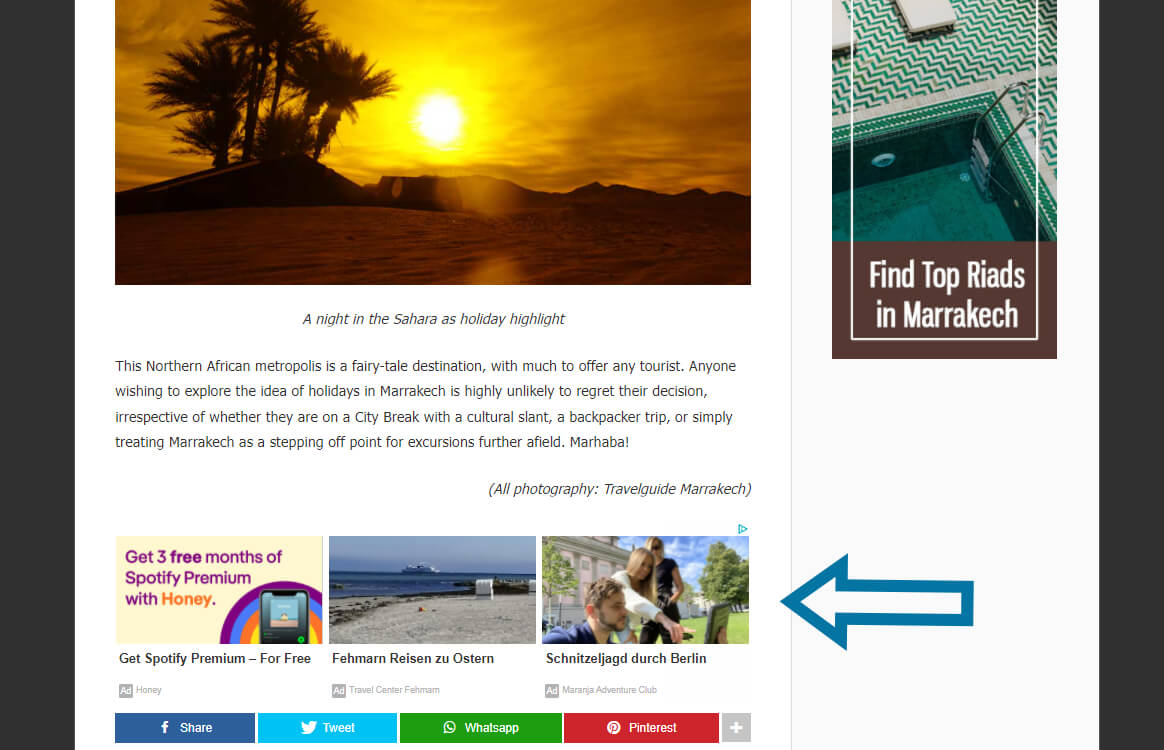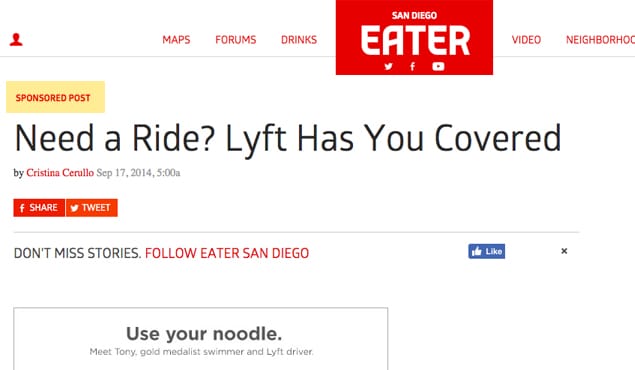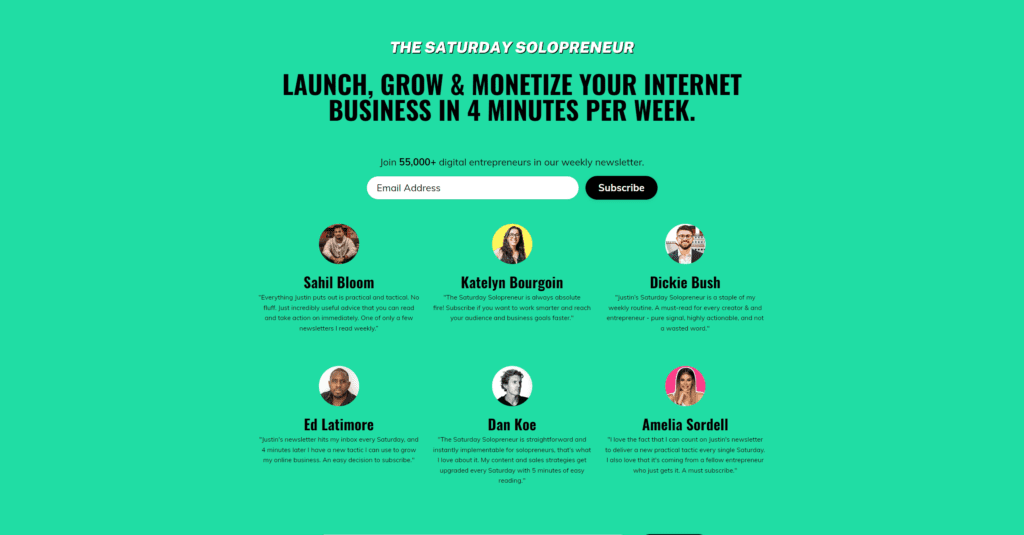As a marketer, you understand the value content marketing and search engine optimization can bring to the business. But anytime you mention using a content-focused strategy, your pitches to executives fall upon deaf ears.
There is a whopping 18% of marketers do not use content marketing while the other 82% consider it to be a core business strategy! How can this be? Executive buy-in must be one of the reasons why brands choose not to utilize content marketing.
We already discussed ways to communicate the value of search engine optimization to business executives. In this article, we are going to take this a step further.
We will discuss how you can begin monetizing your content marketing to calm the worries of a business executive who does not buy into marketing techniques that are not attributed to revenue directly.
Here Are Ways You Can Monetize Your SEO-Optimized Content
Content marketing can be monetized in four ways:
- Promoting other people’s stuff through affiliate marketing.
- Selling website real estate for advertising.
- Accepting sponsored posts
- Creating subscription-based content.
Get Paid By Driving Traffic and Leads to Affiliates
Affiliate Marketing is becoming a popular way for companies to generate new business at a reduced cost. Individuals or external brands promote the affiliate’s product or service and get paid a commission for their efforts.
If you have a successful content marketing strategy and generate thousands of sessions of web traffic for a certain vertical or niche, you should look to join an affiliate program to route some of that traffic or generate leads.
When you sign up for an affiliate program, the affiliate will provide links to help the affiliate identify where the traffic or conversion came from or to who to attribute a conversion. These links generally track a customer for seven to 30 days.
Use one of your best blogs or pieces of content and sprinkle some affiliate links into them. But make sure the link and the product you are promoting make sense for the article.
For example, if you are an outdoor company that writes blogs about hiking, you should choose to promote an affiliate product like hiking shoes, not automobiles.
Be aware of not posting too many affiliate links on one page. Google has been taking notice of websites that do not provide value to the user and not ranking them.
If you have a website full of affiliate links, Google will likely not rank the site on the search engines because it will sense that you’re trying to make a profit for yourself, not necessarily trying to educate the visitors of the website.
If You Experience High Volumes of Traffic, Sell Advertising Space

If your website is generating lots of monthly volume through its content, you should look to sell advertising space on your site.
To begin selling advertising, you need to carve out areas on your blog or article templates where ads would go. For example, you can have dedicated areas for banner ads at the top or bottom of your page or display ads near the sidebar.
The first ad network you should look to for selling advertisement space is Google Adsense.
Adsense makes it easy to monetize your site. All you need to do is place some code on your site and the tool tailors ads to the design layout of your site and even optimizes ad size for mobile responsiveness. Your payout depends on the demand from advertisers, location, and industry or niche.
The next step up from Google Adsense would be Media.net. Media.net taps into the demand side platforms like Yahoo and the Trade desk.
It serves advertisements based on the contextual makeup of your article, native ad units, and display ads.
However, a difference from Google Adsense is that there is that entry application process is much more strict with Media.net compared to Google Adsense.
For example, Media.net is known to automatically reject applications of websites that are located in areas other than the United States and Mexico.
Once You Gain Authority in Your Niche Consider Sponsored Posts

Monetizing your content marketing efforts becomes easier once you have established authority in the marketplace. When you become the “go-to” source and knowledge leader in a space, you will likely have other brands knocking on your door asking you to promote their content to your vast audience.
The reasoning behind this demand is that your site will likely rank very high on search engines.
One ranking goal for sites just starting in SEO is to gain high authoritative backlinks because it signals to Google that your website should be respected since a trustworthy domain has linked to it.
One way to monetize your content is to accept sponsored posts featured in your blogs and articles. A sponsored post is usually a small blurb located in your blog article or found externally on a blog hub page.
The sponsored post will blend right into your content with the only caveat being the post being labeled as “sponsored” (usually after the title there’s a “sponsored post” text).
An interested reader will then click on the sponsored post and be redirected to the link or content being promoted.
You can charge a flat fee for the sponsored post or payout based on performance metrics, like clicks or email subscriptions driven to the new website.
Gate Your Content and Build a Content Subscription

Another great way to monetize your content efforts when you gain authority is to gate your content. This method works well for solopreneurs or freelancers.
If you are in business for yourself and have a large following on Linkedin or Twitter, begin offering your content in a package or a subscription bundle. That way, people have to pay a small nominal fee to access your content.
You can achieve this by using platforms like Patreon that help you accept payment for monthly memberships.
You can create content like a 52-week “fast, easy guide to a successful e-commerce business” where a piece of content is released weekly.
You can also create a member-exclusive Linkedin, Facebook, or Discord group where you post your exclusive content.
A great selling point for this method is allowing your group to contact you directly with questions related to your topic.
Why Should You Look to Monetize Your SEO-Optimized Content?
Content marketing and search engine optimization are both excellent marketing techniques that drive large quantities of traffic but linking to revenue can be a bit murky at times, especially when you are a smaller brand or just starting.
The most investment you make with these strategies is your time.
In business “time is money”. There are high-level executives out there who do not understand the impact of content marketing and SEO.
They instead devote time and budget to attack another strategy more directly tied to revenue.
Top Level Executives Like Attribute Marketing Efforts to Revenue
One of the biggest pitfalls of content marketing and search engine optimization strategy is the length of time needed for results to develop.
Some executives downplay the effectiveness of these strategies for that reason. They cannot attribute the budget dedicated to SEO and content marketing to revenue downstream right away.
This case is common in smaller, bootstrapped businesses that are very stingy with their marketing spending.
An executive might choose a paid media strategy because it is easier to see how your ad spend can equate to your revenue.
Letting your executive team know you will monetize while scaling your content should calm some of their uneasiness.
Monetization Can Give Focus to Your Content
When you start monetizing your content, you will notice which type of content drives more traffic and revenue. You can also determine the behavior of your ideal audience takes when making a decision towards a purchase.
To maximize revenue from your content, you should create more of your best-performing content.
You might find more affiliate partners with similar website links to the ones generating the most clicks.
You can seek advertising partners with similar products that get the most banner clicks. So on and so forth.
When Should You Look To Begin Monetizing Your Content
If you build a website to monetize quickly, you might find yourself in a difficult place.
A brand-new website has virtually zero chance of becoming an authoritative brand in the eyes of the consumer right away unless you are working in an uncompetitive niche.
Some monetization platforms do not accept websites that are younger than six months old in some cases.
There also could be traffic qualifiers that your website needs to hit to make it through the review process.
The website may need 10,000 sessions of quality organic traffic, not bots or traffic brought in through paid media to be considered eligible for monetization.
Your traffic may need to be located in a certain part of the world.
When attempting to monetize your content, be sure to check your program’s terms and conditions to determine eligibility requirements.
What Content Monetization Tactic Should I Try First With a New Brand or Website?
If you have a newer brand or website and are looking to start monetizing your content, I recommend going through the affiliate marketing route first.
The requirements for entry into an affiliate marketing program are less restrictive compared to that of an advertising network.
As long as your website is appropriate and meets the guidelines set by the client, you should get in with no problem.
As you build your website and acquire more traffic you can then look towards an advertising network. With affiliate marketing, you have to rely a bit more on your marketing skills to receive your payout but it’s a learning lesson.
Conclusion
Monetizing your content marketing is a great way to buy yourself some wiggle room for support from higher-level executives.
There are several ways you can generate revenue from your content efforts that will calm the nerves of revenue-driven business executives.
About the Author
Andrew McMenamy
A natural problem solver with 6 + years of marketing experience building audiences across numerous verticals. Specialties include content, email, and performance marketing. Andrew graduated from Dowling College with a Bachelor’s in Business Administration in Marketing Management. Follow me on Linkedin and Quora.
